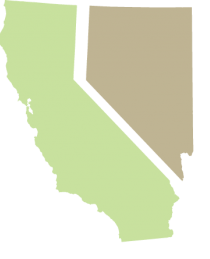
While there are many agencies involved in the provisioning of climate services in the United States, there are several that have begun addressing a specific need for applied climate research, which focus on outputs that are termed “usable climate science.” These are often 1) directed at a specific stakeholder group or need and 2) use a co-production of knowledge approach, that to varying degrees, involves the stakeholder in the development of the research question, research design, data collection, and the format of final research outputs. While there is a growing belief that this approach is more likely to produce climate science that is both usable and relevant to informing management decisions, how to evaluate the success of this approach has not been fully addressed.
In February 2016, CNAP hosted a workshop at DRI in Reno, NV for researchers, practitioners, and organization leads to meet and discuss how to move the evaluation of co-produced climate science forward. Our goals for the workshop were:
Summarize the different tools and approaches used to evaluate co-produced climate science and an understand of where they differ and where they overlap
Identify the gaps/needs in evaluating co-produced climate science, from evaluators, researchers, and leadership perspectives.
Our guiding question for the 2-day workshop was “What needs to be in the evaluation bucket for co-produced climate science that currently is not there? What needs to be let go? How do we move forward?”Participants included members from RISA program leadership and teams (CIRC, CCRUN, CLIMAS, ACCAP, Pacific RISA, and WWA), the USDA Climate Hubs program leadership, Landscape Conservation Cooperative leadership and LCCs (Great Plains and Great Basin), Southwest Climate Science Center leadership, and experts in evaluation theory and practice. Key themes from the workshop include a need to 1) better understand the capacity of these organizations and researchers to engage in co-produced climate science—what is realistic to expect? 2) Identify where we need to evaluate programs and where we need to evaluate processes, and 3) a need to be purposeful in our experimentation—in co-produced climate science and our evaluation of these processes and programs. A key outcome of this workshop was the strengthening of coordination and collaboration between these organizations, researchers, and practitioners in approaches to evaluating co-produced climate science. Currently, we are in the process of developing a more formal community of practice (CoP) to work on developing and testing evaluation approaches during the next five years, as a part of CNAP’s evaluation model.
Click here for recent paper of Climate Science Evaluation by Tamara Wall and co-authors.

